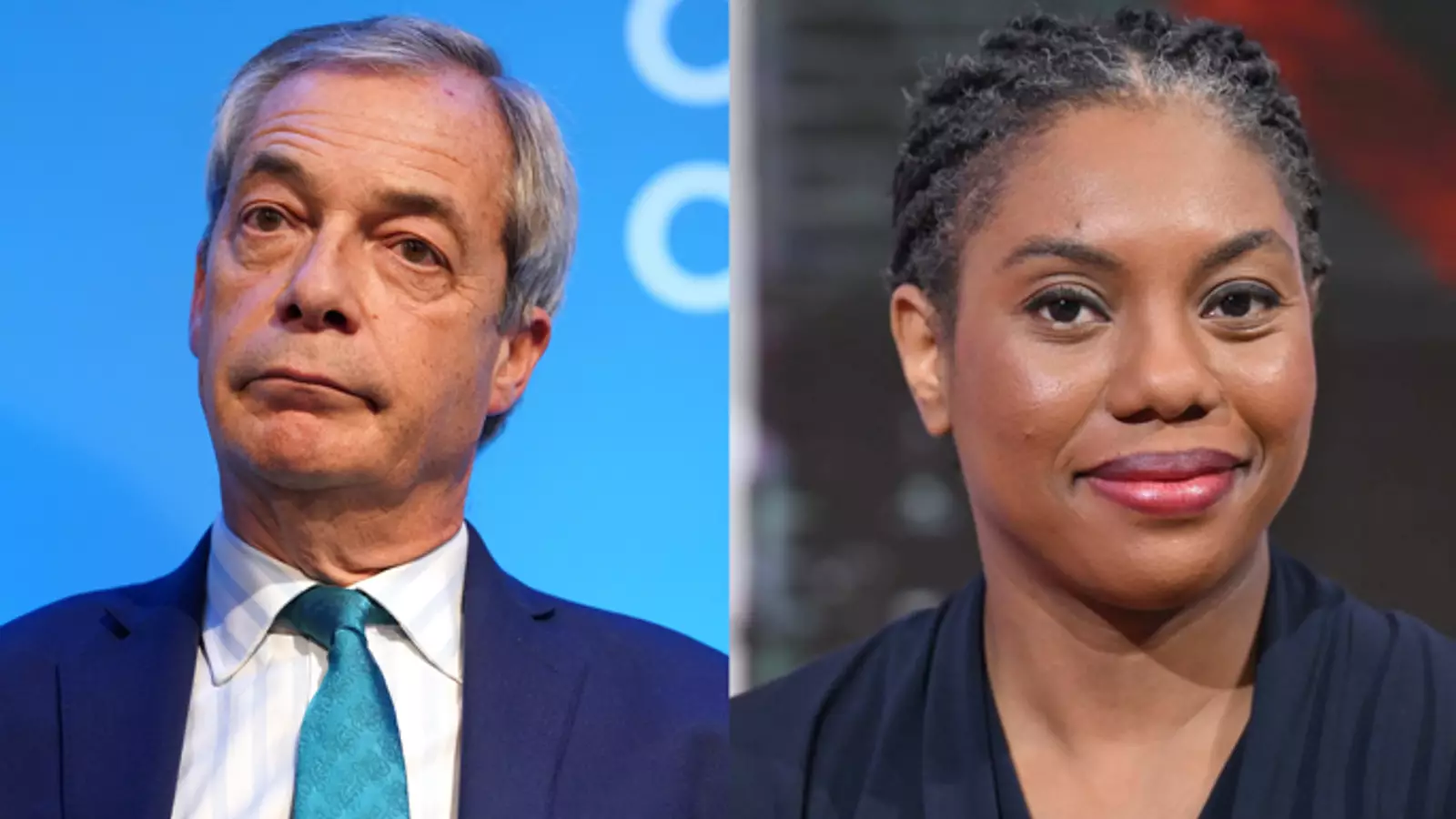Recent polling data from YouGov has revealed a significant shift in the political landscape, indicating that the Conservatives, under Kemi Badenoch’s leadership, now find themselves in direct competition with Reform UK, led by Nigel Farage. The implications of this shift are profound, highlighting vulnerabilities within the Conservative brand that may reshape the electoral battleground in the near future. The findings underscore an alarming trend for traditional Tory voters, who now seem more receptive to the newer political challenger.
The polling results demonstrate a stark contrast between the two parties in terms of voter confidence. Only a mere 10% of the electorate perceives the Conservative Party as strong, while an overwhelming 61% views them as weak. On the other hand, Reform UK garners a more favorable impression, with 31% of respondents labeling it as strong, and only 27% deeming it weak. Such a disparity not only indicates a loss of faith in the Conservative brand but also suggests that Reform UK may be well-positioned to capture the attention of disillusioned conservative voters.
Another critical area where the two parties diverge is in their perceived sense of direction and purpose. A scant 18% of voters believe that the Conservatives possess a clear vision for the future, while a staggering 59% report uncertainty about the party’s intentions. Contrastingly, Reform UK makes a strong impression in this regard, with 49% of the electorate affirming that the party has a clear purpose, while only 24% feel similarly lost. This discrepancy is telling; it reveals that voters are now more inclined to attach themselves to a party that presents clarity and direction amid political turmoil.
The implications of these perceptions extend far beyond mere numbers. They signify a shift in electoral strategy where clarity of purpose could become a determining factor for voters. In a climate fraught with uncertainty, the electorate appears to be gravitating toward options that promise firm solutions and articulate visions, highlighting a growing demand for genuine political leadership.
Trustworthiness remains another area of significant concern for the Conservatives, with just 11% of voters deeming them trustworthy compared to 65% who say otherwise. While Reform UK scores better on this measure—with 19% of respondents considering it trustworthy—the figures still suggest an uphill battle for both parties to win back the confidence of the electorate. As trust erodes, the political narrative becomes more precarious, necessitating a reevaluation of how parties can re-establish credibility and reliability in the eyes of the voting public.
The comparative analysis points to a much larger trust deficit for the Tories, which is likely to deter undecided voters and those on the fringes of the political spectrum. For Reform UK, the challenge lies in consolidating this nascent reputation and converting it into electoral strength, demonstrating that trust can indeed be a powerful currency in political campaigning.
An interesting trend also emerges regarding the electoral bases of both parties. Among voters who previously turned out for Reform UK, a significant 46% express that they will not consider voting for the Conservatives. In contrast, only 36% of Conservative voters assert that they would never vote for Reform UK. This trend indicates a greater potential for instability within Conservative ranks, as the party faces a discernment gap in retaining its traditional voter base while appealing to newer demographics.
As Reform UK strives to consolidate support, its strategy will have to focus on effectively communicating its policies and values to transcend the initial identity of being a splinter party from UKIP. Meanwhile, the Conservatives are forced to grapple with the imperative of re-establishing their relevance amidst rising competition.
The evolving dynamics between Reform UK and the Conservative Party represent a pivotal moment in British politics. Public perceptions are rapidly forming, with voters actively seeking alternatives. With stark contrasts drawn between the two parties in strength, purpose, and trust, the forthcoming months will be critical in defining their electoral trajectories. As the political landscape evolves, the choices made by both parties—whether to adapt to voter sentiments or maintain the status quo—will ultimately determine their fates in future elections. The winds of change are evident, calling for a response that resonates with the electorate’s evolving expectations.


Leave a Reply